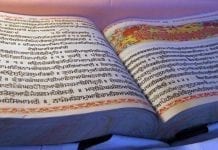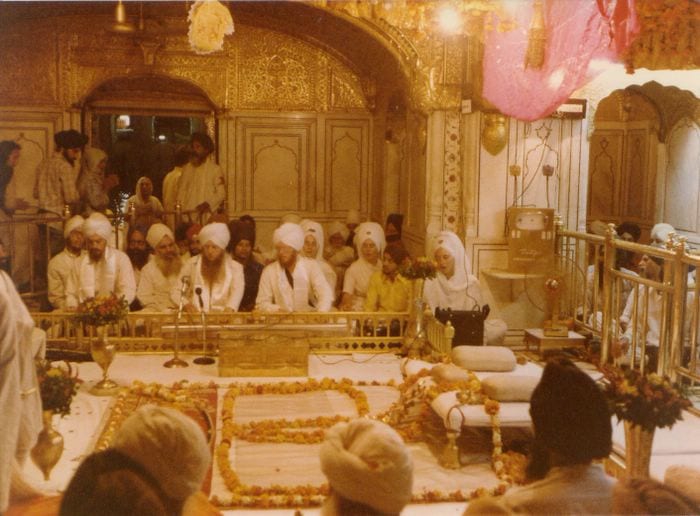ਖੁਰਾਸਾਨ (khuraasaan)
Meaning: noun: Khurasan or Khorasan, the Persian province of Khorasan, a vast historical region presently lying in northeastern Iran, southern Turkmenistan and northern Afghanistan.
Quote:
ਖੁਰਾਸਾਨ ਖਸਮਾਨਾ ਕੀਆ ਹਿੰਦੁਸਤਾਨੁ ਡਰਾਇਆ॥
(ਕਰਤਾ ਪੁਰਖ ਨੇ) ਖੁਰਾਸਾਨ ਦਾ ਖਸਮਾਨਾ ਕੀਤਾ (ਖਸਮ ਵਾਲਾ ਬਿਰਦ ਕਰਕੇ ਉਸ ਨੂੰ ਬਾਬਰ ਰੂਪ ਜਮ ਤੋਂ ਬਚਾ ਲਿਆ ਅਤੇ) ਹਿੰਦੁਸਤਾਨ ਨੂੰ ਭੈ-ਭੀਤ ਕਰ ਦਿਤਾ ਹੈ।
khuraasaan khasmaanaa keeaa hiňdustaan ḍaraaiaa.
(The Creator) has owned or protected Khurasan and has terrified Hindustan (through the agency of Babur). -Guru Nanak Sahib, Guru Granth Sahib, 360
Message: The quote above refers to the invasion of Babur on Hindustan, the Persian name for northern India. In the hymn from which this verse is taken, Guru Nanak views Babur as an unwitting instrument or agency of the Divine will. Instead of moving towards Khurasan, he was tempted to conquer Hindustan.
Lodi Sultans of Delhi had failed to be good rulers and violated the laws. They had to account for their actions. The hymn demonstrates the absolute Divine authority. No one can be above it – the law – the nature or the will. The verse is a statement of Guru Nanak’s firm belief in Divine justice and the ultimate victory of good over evil.
Notes: Generally, the quote is interpreted as “Having conquered Khurasan, Babur invaded Hindustan.” However, it is not very clear if Babur ever conquered or ruled Khurasan region.
Historical sources tell us that Khurasan was ruled by Genghis Khan, Timur, the Afghans, Iranian Safavid kings, and Nader Shah. The Iranian Safavid kings ruled Khurasan from 1502–1736. So when did Babur conquer Khurasan?
At the age of 12, Babur succeeded his father Umar Shaikh Mirza of Fergana (now in Uzbekistan) and reigned there from 1494-97 and 1498-1500.
From 1497-98, 1500-01, and 1511-12, Babur ruled over Samarkand, a city currently in Uzbekistan. In 1504, he became ruler of Kabul where he reigned until 1526. It was from here that he began his conquest of Hindustan, which was then ruled by the Afghan Lodi dynasty.
From 1517 Babur made many attempts to sweep into India and ultimately became the master of Delhi after the victory of Panipat in 1526. Babur wrote in his memoirs about his victory: By the grace of the Almighty God, this difficult task was made easy to me and that mighty army, in the space of a half a day was laid in the dust. (See more here.)




